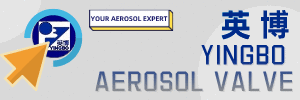Reckitt reports challenging first half of 2021 as shares drop
In its results for the first half (H1) of the year, Reckitt, which owns brands including Dettol, Air Wick and Lysol, reported that its revenue for H1 2021 dropped from around £6.9 billion (€8.1 billion) in 2020, to £6.6 billion (€7.7 billion).
The company said rising costs had pushed its operating profit down for the first six months of 2021 and warned that supply chain disruptions meant it might have to increase costs later this year, going into early next year.
The firm’s CEO, Laxman Narasimhan, said inflation was being experienced ‘across the board’, and that it planned to introduce efficiency savings and potentially pass higher prices to consumers. Subsequently, shares in Reckitt, based in Slough, UK, fell by 8% on 27 July, making them the biggest ‘faller’ on London’s FTSE 100, according to The Guardian.
In its H1 report, Reckitt said it expected Q3 to be ‘slower’ due to stronger prior year comparators; however although it is early in the year, it is ‘encouraged’ by the Q2 trends in its cold and flu portfolio and expects a moderate season to strengthen its performance in Q4.
Laxman Narasimhan, CEO of Reckitt, said that against a challenging environment, he is “encouraged” by the progress the company has made in H1.
“Around 70% of our revenue, excluding IFCN China [infant formula and infant nutrition], is from brands growing by mid-single digits in the period, in line with our strategic vision,” said Narasimhan.
“The remaining 30% includes our disinfection brands, which are structurally rebasing, as well as our cold and flu brands, which are now starting to show positive momentum.
“Overall demand in the disinfectant category remains significantly higher than pre-COVID-19 levels and the two-year stacked growth of our hygiene portfolio is up 34.1% compared to a normal growth rate, pre-COVID-19, of around 4%.”
Narasimhan noted that markets are dynamic, reflecting several factors Reckitt is closely monitoring, including the prevalence of COVID-19 strains and government guidelines such as new lockdowns and social distancing.
“Although the third quarter will be slower due to strong prior-year comparators, as the world gradually opens up and socialisation returns, cold and flu trends indicate a moderate season which should strengthen performance in the fourth quarter.
“Based on the current situation, we, therefore, continue to expect like-for-like net revenue growth to be within the 0-2% range set out in February 2021.”
Cost inflation accelerated in Q2, said Narasimhan, who stressed it will take time to “offset this headwind”, with productivity and pricing actions being implemented in the back half of the year and early next year.
“This will largely offset the margin accretion in 2021 from the disposal of IFCN China,” he said. “As a result, our guidance, which now excludes IFCN China, is for the adjusted operating margin to be between 22.7% and 23.2%, which is 40 to 90 basis points (bps) lower than the 23.6% reported for the full year 2020.
“The benefits of the investments that we have made in the business in innovation, service, quality and supply are starting to come through and we have grown revenues, with 60% of revenue from our core CMUs gaining or holding share vs H1 2019, despite a very dynamic trading environment.
“eCommerce net revenue (excluding IFCN China) now accounts for 12% of group net revenue and increased by over 95% on a two-year stacked basis. Our innovation pipeline for 2022 is over 50% larger than this year and we are actively managing the portfolio for growth with the acquisition of Biofreeze, the sale of Scholl, and the agreement to sell IFCN China.”
Narasimhan said Reckitt is “encouraged” by the progress it has made to strengthen the foundations of the business and reposition itself for sustainable growth. It expects to exit 2022 with a revenue growth run rate in the mid-single digits.
Product category breakdown
Hygiene
Reckitt’s hygiene net revenue grew by 18% in H1, with strong demand reported across most markets. By brand, Lysol’s net revenue continued to grow strongly and on a two-year stacked like-for-like basis, net revenue grew over 100%.
Overall demand in the disinfectant category remains ‘significantly higher’ than pre-COVID-19 levels, said the company, although there has been some reduction in the frequency of usage compared to the ‘peak levels’ experienced in Q1 2021. Still, Lysol, which includes aerosol disinfectant products, is present in 22 million more households globally today compared to 2019.
Air Wick, including aerosol air freshener products, grew in the double digits, reflecting growth across all major markets, despite strong prior year comparators when lockdowns were first introduced.
Health
Net revenue in the health category declined by 10.2% on a like-for-like basis in H1, with strong growth in intimate wellness, Gaviscon and personal care offset by the effect of challenging comparators in Dettol and the weak cold and flu season, due to COVID-19 measures.
Following Dettol’s ‘exceptional growth’ in 2020 with household penetration globally increasing by over 530 bps, Dettol’s net revenue declined in the low double digits in H1. Most major markets were lower year-on-year, said Reckitt, as demand normalises from the 2020 peak, but the company is seeing early signs of stabilisation in some markets.








